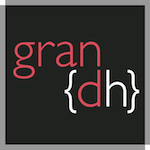What are the opportunities and challenges of distributed large-scale data to the disciplines in the humanities? The GRAND Digital Humanities (DigHum) project will concern itself with four connected problems based on the extensive history of digital humanities research in Canada and through a series of international collaborations:
- Digitization: How can knowledge of the human record be best represented digitally? How can we enrich digital records with knowledge so that they can be discovered and used for unanticipated research? How can we edit new knowledge so it is accessible? (This problem will touch directly on the work done by scholars in Canada and beyond for the past three decades but has drastically increased in scale and complexity in the last five years.)
- Analysis: How can we ask new questions of the digitized record? How can we represent digital knowledge in visual and interactive ways that makes it easier to explore and argue? (Working in partnership with the SSHRC-funded INKE team, this project will benefit from the work done by that team and will take it further within GRAND.)
- Citizen Scholarship: How can we use the network and new models for crowdsourcing knowledge to involve the public in scholarship? (Crowdsourcing projects like the ‘Transcribe Bentham’ project at University College London have demonstrated the value of involving the public at large but further work in Canada needs to happen.)
- Humanities Infrastructure: What sort of research infrastructure is needed to support new models for research and interaction? How can humanists and librarians experiment with research infrastructure prototypes? (Recent programs from CFI and Canarie, along with the SSHRC international grant program ‘Digging into Data’, have encouraged new collaborations on this topic)
The proposed research is timely as the Humanities gets to be redefined in an age of big data and extended collaborations with other disciplines and partners from outside of the traditional academic realm (a move more unusual for humanities projects than for social sciences or science-based ones).
